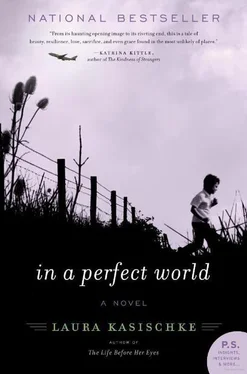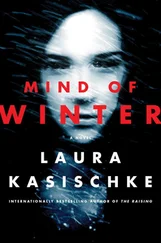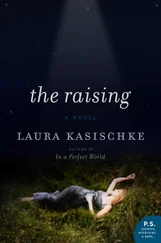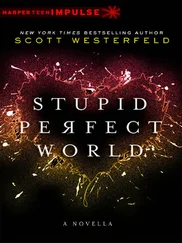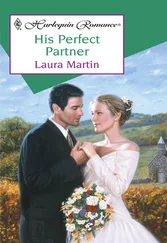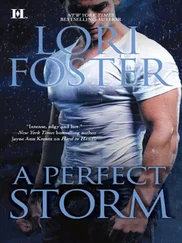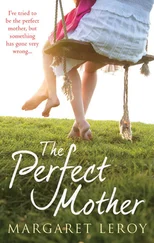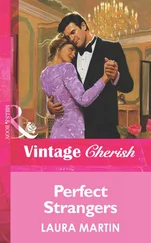“I don’t know, Sam,” Jiselle said. “Gas. If we waste it, and the store’s not open…”
She had gone by herself into town three weeks earlier and found that even the stores that hadn’t been closed before—the office supply store, the hardware store—had dark windows, padlocked doors. Certainly, she thought, none of these would have reopened.
“But we have to see,” Sam said of the pet store. “We have to try.”
“No, Sam. We—”
But as Sam stood looking out at Beatrice, Jiselle could see the ravine reflected in his eyes and also the rain falling in staticky gray light over it all. In the dampness, everything shone. Slippery. Slick. She imagined Sam imagining Beatrice retreating into the ravine, never returning to them, disappearing.
What, Jiselle wondered, did farm geese eat if there wasn’t any Fowl Feed Deluxe? She wished she’d asked the pet store owner the last time she and Sam had gone there. How wrong had it been to feed her from the beginning? She’d grown dependent on them, and now they had nothing for her.
Jiselle inhaled. She was having trouble looking into Sam’s deep, tear-filled eyes.
“Please?”
“Oh Sam,” she said.
There was, she knew, plenty of gas—for now. They’d siphoned the Cherokee’s tank, but what they had in the Mazda would have to last, and she did not know for how long. She hesitated, but then she said, “All right. Well. I guess we could at least go see. And if the pet store’s still closed, I’m sure we could find something at the grocery store. I’m sure Beatrice eats something besides”—she could find no words to describe the oil and ash of the food Beatrice ate—“and I have to go to the bank anyway.”
It was true. She was out of cash, and although there was really nothing she needed to spend cash on anyway, it made her nervous to have none. The idea of an “emergency” was still alive in her, even now that she realized how few emergencies could be averted with cash. You could not eat cash. You couldn’t use it to heat your house, reduce a fever. Still, Jiselle had stayed in the habit of going to the bank once a month to make sure Mark’s check had been deposited. So far, it had.
“You have to stay here, though, okay?” she said to Sam.
In the last week, Jiselle had heard from Paul Temple and on the radio about carjackings and violence in cities—particularly on the West Coast—over gasoline and batteries. She’d begun to worry about her mother, living alone. Her mother had been fine through the power outages, making her own fires, cooking over them. (“I grew up in worse conditions than this,” she’d said. “You have no clue, Jiselle, what life on a real farm is like.”) But if there were violence, if there were thieves?
Her mother had said, as she had said before, “Don’t worry about me, Jiselle. You’re the one with the problems.”
That things would deteriorate—slowly but certainly—seemed to be what most people believed. There would be more illness, more violence, before things got better—although most people also believed that the Midwest would fare better than the coasts. The last time Jiselle had been in town, the fountain was still bubbling at the center of the park and the flag was still flying (never again at half-mast) outside the post office, even after it had been closed down. Until mid-July they’d even kept the pool open. “We will not participate in Doomsday thinking!” a spokeswoman for the town was quoted in the newspaper as saying.
The newspaper, which had been a weekly, was now coming out only sporadically, but when Jiselle had bought it the month before, it was full of uplifting stories about canned food drives and Boy Scouts cleaning up the streets. There was no longer any obituary section at all.
When she went to the kitchen table to pick up her car keys, Jiselle found Sara standing there. She’d overheard Jiselle telling Sam she would go into town, and she said, “Well, you’re not going by yourself. I’ll go with you.”
“No,” Jiselle said. “I’ll be fine. You stay, and—”
“I want to go,” Sara said and turned into the bedroom, as if that were the end of the conversation.
“Will you be okay here alone?” Jiselle asked Sam. Camilla and Bobby were gone, helping Paul deliver firewood to some of his elderly neighbors.
“Sure,” he said. “Besides, I’m not alone.”
They were quiet for a minute and could hear, in Sara’s old room, the light voice of Mrs. Schmidt singing some old, familiar song.
The drive into St. Sophia was accompanied by the radio’s static-filled starts and stops. Jiselle turned it first to the oldies station, but there was nothing there but a series of beeps. Morse code? The only other station they could find that wasn’t religious sounded as if it were being transmitted from the moon—a few memorable bars of a song (“Miss American Pie,” “Tea for the Tillerman”) interrupted by fuzz.
Finally, they turned the radio off.
After the early morning rain, the sky had turned a dazzling white, and Jiselle took the Mazda’s top down before they left. The air felt soft, and although there was less light, and the sun seemed to have crept farther away from the earth, a radiance was draped over everything. Summer cast its last, bright shadow on the ground. In the previous weeks, there had been a strange influx of hummingbirds, and also sandhill cranes. Paul thought that these species were stopping by from some more northern place, or that they were confused, detoured, blown off track, or had miscalculated and were headed south too soon.
For the hummingbirds, Sara had concocted her own recipe for nectar, melting down some stale cotton candy she’d found in the back of her closet, left over in a plastic bag from a carnival a million years before, and she left little saucers of it out on the railing around the deck. One night at dusk, there’d been masses of them swarming those saucers, glistening and iridescent and beating their wings in a supernatural blur. They zigzagged through the air around the house as if they were working together to sew an elaborate net, tying the house to the ground.
Sara managed to stand still long enough with a saucer of nectar held up in her palm that two of the hummingbirds—ruby-throated, soft, and motorized gems—landed on her fingers, dipping their long beaks into the dish, and stayed that way for several seconds before humming away, chasing one another off with angry stabs.
“Oh my god!” Sara said, turning to the doorway, where Sam and Jiselle and Camilla stood watching, holding their breaths.
Sara rested her elbow on the car door. Her fawn-colored hair flew around her face in a shining blur as they passed through the outskirts of town and into St. Sophia. It had been less than three weeks since Jiselle had been there, but the town looked strange to her. Had she simply not noted, then, the gradual changes that had resulted in this more complete change?
The lawns, which had been so neatly trimmed and bordered with petunias and impatiens, and the gardens dotted with pansies, seemed to have overgrown in crazed and unexpected ways. The grass and weeds in the lawns were hip high. The petunias in the gardens were tangled in poison ivy. The domesticated faces of those pansies were entwined with wildflowers—sweet pea, thistle. She slowed down to the twenty-five-mile-per-hour speed limit in town and saw a rocking chair on a front porch completely covered in vines that bore a kind of spiky purple flower she’d never seen. Windowboxes spilled their contents—long ropes of blossoms and leaves flowing out of them down the sides of houses. All the cars were parked, and no one was on the sidewalks or coming in or out of the houses. A thin black cat sat on the hood of a pickup truck parked next to the post office, licking its paw. It looked up when Jiselle and Sara drove by, seeming to watch them with distaste as they passed.
Читать дальше
